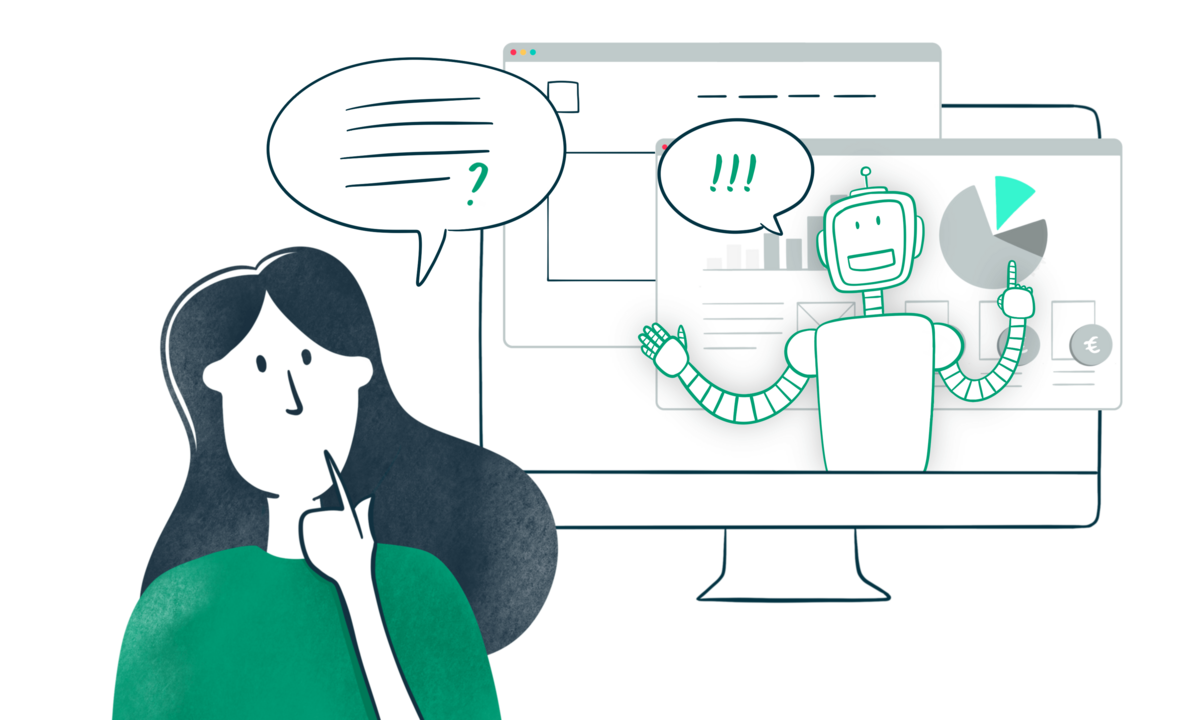AI as the new search engine? How web search is changing and what companies should do now!
Search engines and the search behaviour of users are changing. With the increasing integration of Large Language Models (LLMs) such as GPT-4, Gemini and many more into systems such as Bing, Google SGE or Perplexity, new search habits are emerging - away from the classic click on ten blue links and towards direct answers, context and recommendations by AI.

What does this mean for B2B companies?
Anyone investing in SEO today needs to ask themselves:
How visible is my company in a world in which AI systems aggregate, summarise - and pass on - content without users visiting the original source (e.g. company website)?
Because: AI-supported search systems extract information directly from websites, restructure it - and often present it without a link to the source. If you are not technically clean and relevant in terms of content, you run the risk of no longer being part of the "answer".
Another important SEO aspect:
In classic SEO, it was an advantage when users:inside actively came to a company website - they researched there, got to know the brand and built trust. Expertise became visible through context, references and depth.
Today, AI chat systems take over large parts of this research - often without a direct visit to the website. This makes it all the more important that the company is mentioned at the point of information (POI) when it comes to specific questions about products, services or reference topics. This is the only way to keep the expert status visible - even in the AI-controlled world of answers.
Example: A chatbot provides the right answer - and refers specifically to the company that has built up this expertise.
Three measures that make sense now:
Structure content & keep it up to date
LLMs prefer clearly structured, topic-focussed content. Outdated or vague pages are less likely to appear in the training data or AI answers.
Think semantic SEO
Not just keywords, but terms, connections and contextual depth are crucial. If a topic is covered comprehensively, it is better recognised as a "trustworthy source" - by search engines and AI systems.
Use technical SEO & structured data
Schema.org markup, correct metadata and a valid HTML framework ensure that crawlers and AI systems can interpret content correctly. Loading times, mobile optimisation and accessibility also remain relevant.
How does my content get into systems like ChatGPT in the first place?
ChatGPT & Co. are based on a predefined training dataset that only lasts until a certain cut-off date. However, newer versions and integrations now also enable these systems to access the internet in real time.
The challenge for companies is that there is often no direct control over whether and when an AI system accesses its training data for a specific enquiry, performs a live web search or uses a mixture of both.
What else you should know
- Transparency & trust addresses one of the biggest challenges of AI systems: In the B2B sector in particular, it is important that users can understand the origin of information in order to avoid scepticism and build trust in the brand.
- Multimodality reflects the trend towards holistic user experiences and enables differentiation from pure text competition.
- Companies should not only check their content regularly, but also actively expand it with new insights, case studies and market developments in order to appear as an up-to-date and trustworthy source.
- AI-based systems increasingly understand context and individual user needs. Companies that structure their content semantically and contextually and provide personalised information increase the relevance of responses.
Tip:
If you want to control content explicitly, you can also use APIs, custom GPTs or your own RAG model (Retrieval Augmented Generation) to provide AI systems with company-specific knowledge - e.g. for internal use or customised applications.
Conclusion - AI is not the end of web search - but its next chapter.
Companies that invest today in clarity of content, technical structure and semantic depth will secure their place in the new ecosystem of AI-supported information processing.
We at MASSIVE ART are happy to support you in the strategic and technical preparation of your website for the AI age. Get in touch with us.






